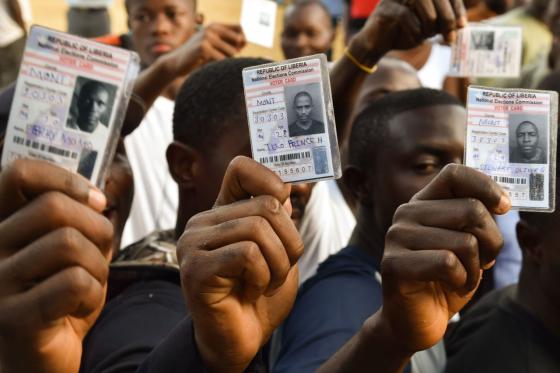So, What Should Liberians Expect in October?

By Wynfred Russell
The air in Liberia is thick and tense, not from the 99% humidity but from the palpable tension associated with the presidential and legislative elections, which are scheduled on October 10.
Many see this election as the most consequential in the country's post-war history and another test of Liberia's nascent democracy. Will the polls be free and accessible to all? Will rigging carry the day, or will the opposition win convincingly that no number of shenanigans will change the calculus?
The 2020 mid-term election outcome was a watershed moment for the opposition, but that fragile unity has shattered; nevertheless, some factors make it more likely that the CDC government will lose power.
The most obvious is that opposition victories are more common in countries where the security apparatus is apolitical and the electoral commission is more independent. The Armed Forces of Liberia appears neutral for now, but I will not vouch for the national police and other para-military organs; their low pay and the pervasive corruption that permeates the government render them susceptible to bribes and financial inducements. The National Election Commission, for its part, is less of a worry; even though it shows signs of ineptitude, it will need a professional psephologist with the grit to cheat for the ruling party.
There will no doubt be logistical challenges. Still, with an alert citizenry, the United States, and the rest of the international community watching, it will be suicidal for NEC officials to rig the election for the CDC. These conditions make them less likely to see rigging and suppression at the polls.
Though, the elephant in the room has been ignored and needs to be addressed – the census. The Liberian constitution mandates that a census be taken every ten years to count all citizens and noncitizens in the country. A poor census administration advantages President George Weah and makes it easier for his administration to cheat. So far, the opposition seems ambivalent at best and weak at worst to pressure the government to remedy the issue. Getting a complete and accurate population count is critically essential.
The absence of credible decennial census data is an existential barrier to a free and fair election. An accurate population count is the bedrock of fair election and representation. So, are we likely to see an opposition boycott of the polls?
A sustained pressure on the Weah administration to change course will likely minimize voter apathy, which means the government of Liberia will find it harder to intimidate opposition supporters. But that doesn't mean it will be a cakewalk; people have to register and show up to vote because the CDC will be more vulnerable to defeat when the opposition is united and determined, and so far, it is wishful thinking. A split opposition vote will allow Weah to win.
An incumbent African president going for a second term or reelection has a higher propensity to cheat or make life miserable for the opposition. Weah has yet to show over the nearly six years of steering the country's affairs that he is competent or can be trusted. His personal and political future is on the line, so expect anything.
Elections are not a precise science, especially in a country like Liberia, with many variables and unknowns; many factors will shape how the election eventually plays out.
However, as we get closer to election day, I expect the public and opposition political leaders to become vociferous about the government's incompetence and mismanagement. The chances of an opposition victory will increase. At this point, a CDC defeat is more likely than not.
Why would the CDC lose in October? There are very few people in Liberia right now who are happy with the state of the economy, poverty, and the debilitating corruption so pervasive in the country. Hence, winning the election will pose a monumental challenge to Weah and the CDC.
However, Weah has things in his favor – incumbency, money, and a cult-like following, making a sweep of opposition victories uncertain. His other saving grace is he faces a fractured opposition and can use state resources to bolster his campaign. At the same time, the leading opposition candidates do not have an adequate and well-oiled political infrastructure to overcome Weah and the CDC.
Still, suppose Boakai, Cummings, or Gongloe doesn't secure a first-round victory, and the opposition bloc coalesces behind a single figure in the run-off. In that case, Weah may find that only electoral manipulation will keep him in office.
